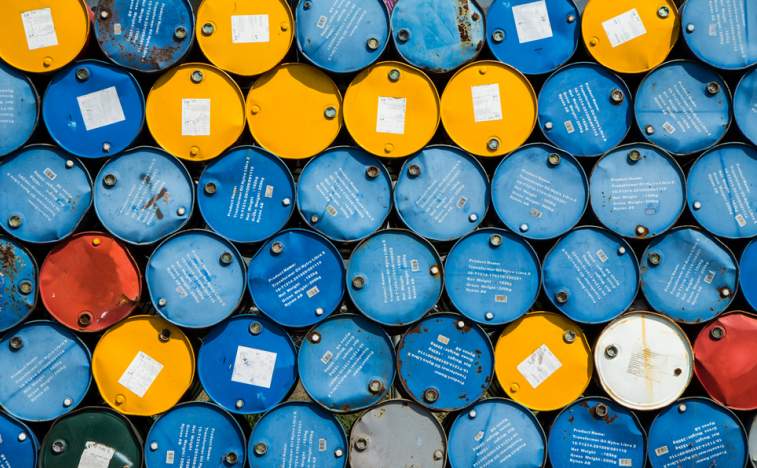
London — Brent oil futures fell on Wednesday from a four-month peak hit in frenzied early trading after a rocket attack by Iran on American forces in Iraq appeared to have no impact on oil infrastructure or crude flows.
Tweets by U.S. President Donald Trump and Iran’s foreign minister also seemed to signal a period of calm – for now. Trump is due to make further statements later today.
Analysts said oil markets remained focused on the targets in the Wednesday attack being military, rather than oil industry facilities.
Brent crude futures were down 60 cents, or 0.88%, at $67.67 by 1334 GMT, after falling by over $1. In early trade, the contract hit its highest since mid-September at $71.75.
West Texas Intermediate crude futures were down 92 cents, or 1.47%, at $61.78 a barrel, after also falling over $1. The futures earlier hit $65.85, the highest since late April.
“The Iranian missile strike overnight did not have a negative impact on the region’s oil supply, so those that covered early in the morning may have re-instated their short positions, or those who went long started to liquidate,” Tamas Varga of PVM Oil Associates said.
Iran’s missile attack on U.S.-led forces in Iraq came early on Wednesday, hours after the funeral of Qassem Soleimani, the commander of the country’s elite Quds Force killed in a U.S. drone strike on Jan. 3.
Tehran fired more than a dozen ballistic missiles from Iranian territory against at least two Iraqi military bases hosting U.S.-led coalition personnel, the U.S. military said on Tuesday.
Stock, currency and gold markets were also roiled by the attacks.
Trump said in a tweet that an assessment of casualties and damage from the strikes was underway and that he would make a statement on Wednesday morning U.S. time. “All is well!” Trump said in the Twitter post.
TEMPORARY PHENOMENON
Early indications suggested no U.S. casualties, one source told Reuters, although other officials declined to comment. Iranian state television said 80 “American terrorists” had been killed and U.S. helicopters and military equipment damaged.
Iraq, Germany, Denmark and Norway said none of their troops were killed or injured.
“Now the price move will depend on what the red line will be for Trump. After the initial reaction, gains have been taken back,” Olivier Jakob of consultancy Petromatrix said.
“Headlines about Saudi’s Bahri shipping, likely a temporary suspension, show that what is happening in the region is going to have some impact on oil flows. We’re seeing this on freight rates now, so the risk on supply cannot be fully discounted.”
Saudi Arabia’s state tanker operator Bahri temporarily suspended transits through the Strait of Hormuz, the Wall Street Journal reported.
In a research note, Goldman Sachs maintained its three-month view for U.S. oil at $63 a barrel.
“The recent rally in oil prices is unsustainable without actual supply disruption,” the bank said.
The Organization of the Petroleum Exporting Countries will respond to any possible oil shortages if necessary, but it also has “limitations”, the United Arab Emirates energy minister said on Wednesday.
Suhail al-Mazrouei said he sees no immediate risk of supplies through the Strait of Hormuz being blocked.
In Wednesday’s attack, Iranian news agency Mehr said Iran’s Islamic Revolutionary Guard Corps had targeted the bases in Iraq that hosted U.S. forces. Tehran had vowed retaliation for the killing of military commander Soleimani.
“Iran took and concluded proportionate measures in self-defense,” Iranian Foreign Minister Jawad Zarif said on Twitter. “We do not seek escalation or war, but will defend ourselves against any aggression.”



